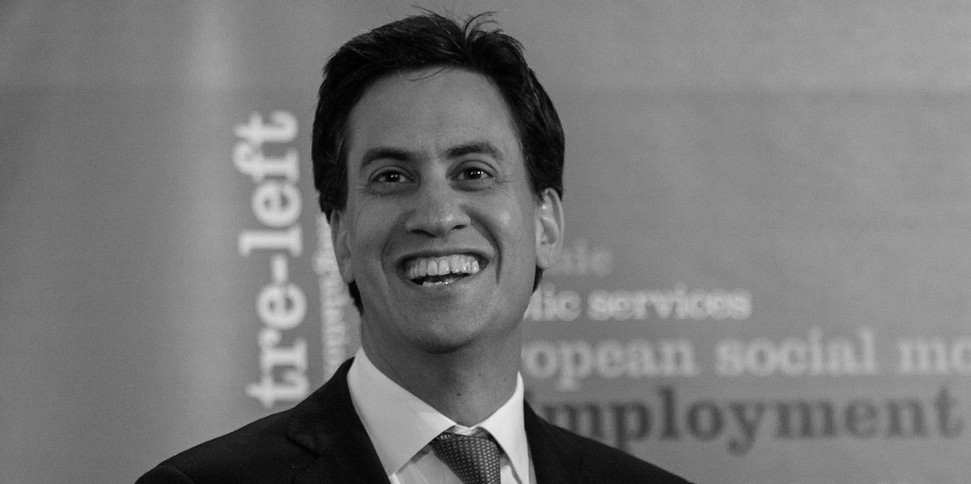Predistribution: The important idea with a bad name
David Cameron confirmed yesterday that predistribution is now a Westminster watchword, the term finding its way into the Prime Minister’s questionable routine at PMQs. With pleasure Miliband informed his opponent that the idea represented that which the government hasn’t delivered:...
David Cameron confirmed yesterday that predistribution is now a Westminster watchword, the term finding its way into the Prime Minister’s questionable routine at PMQs. With pleasure Miliband informed his opponent that the idea represented that which the government hasn’t delivered: an economy that works for everyone.
Predistribution predates its place in Cameron’s performance of course, gradually finding its way into academic policy discussions over the last year and emerging as the conceptual model with which a Labour government would achieve social justice ‘when there’s less money around’.
Outlining this vision during his speech at Policy Network’s ‘Quest for Growth’ conference last week, Miliband qualified his use of the term predistribution: “Not my term I hasten to add”. As I sat in the surroundings of the London Stock Exchange I suspected those listening around me shared a thought. The term may not have originated with him (As Cameron had discovered, Yale academic Jacob Hacker can lay claim to that), yet it is precisely the kind of theory-laden framework that would appeal to the current leader of the Labour party.
This is, of course, routinely highlighted as one of Ed Miliband’s key weaknesses: too academic; too (in an overused phrase) ‘wonk-ish’; comfortable discoursing on New Labour’s economic policy, but unable to make the big decisions.
This speech did not dispel the criticism, but nor did it need to. As Miliband suggested, the attendees were among the minority who agreed with his 2010 conference speech against irresponsible capitalism. This was perhaps generous, but as the themes presented a year ago in Liverpool appear increasingly prescient the Labour leader seemed intellectually comfortable and at ease with his place in the party.
By focusing on elements of New Labour’s social policy Miliband expanded on the priorities of a ‘predistributive’ agenda. The two are of course connected. Redistribution remains essential to Labour securing social justice. But the need for predistribution lay in the questions that were not asked of policies such as tax credits as much as the tight fiscal climate that will prevail in the UK beyond 2015. Why is it that during the 2000s many families required such extensive assistance to ensure an adequate income? Why does the UK suffer both in the supply and the demand of skills? Instead of post hoc transfers designed to ‘top up’ and mitigate, a predistributive programme envisages an economy that distributes income and opportunity less inequitably in the first instance.
While indicating that the coming months will see Miliband and his team mapping what predistribution might mean in finer detail, the speech showed no sign of retreating from the size of the challenge presented by Labour’s historic defeat in 2010 or the economic crisis in which it was mired – no less than a change in function and culture of British capitalism. I agree with Duncan Weldon and others that this will require much more than a focus on skills and a hope for wage growth. Yet one rewarding element of this discussion concerned the UK’s shared institutions. While occupying a central place in the national psyche, shared institutions, such as the NHS, are few and far between as last month’s Olympics perhaps inadvertently highlighted. Due to a tendency to regard institutions as rituals to be hijacked by the privileged, the British left has been guilty of neglecting the relationships such rituals can afford. While addressing this difficult issue is not simple, forging a new relationship with trade unions is one model through which this can be achieved.
Perhaps dauntingly, the scale of this change is immense. And while Ed’s speech was right to deride freeing up planning rules on conservatory extension as a plan for growth, Labour too must be bold if it is to realise the aims of responsible capitalism. As more than one author has noted, the size of this project is not dissimilar to the very different one embarked on by Margaret Thatcher after 1979. It is encapsulated in the Iron Lady’s words which prefaced Jason Cowley’s balanced and articulate interview with the Labour leader for the New Statesman this week “Economics are the method; the object is to change the soul.”.
Unlike the dismal science however, the new ‘common sense’ Miliband believes he can forge with Labour is rooted in the experiences of everyday life. As Marc Stears writes in the Fabian Society’s recent publication, The Shape of Things to Come:
“Ed’s early academic reflections on politics led him to some profound conclusions…A proper political philosophy, in his view, took issues of rights and equality seriously but always located those issues in the practical possibilities of actual times and places. Change needed ideas, but it also required people, movements and parties, not just philosophies.”
Although in need of a name change, predistribution reflects the important thinking and debate ongoing in the Labour party. That much remains to be done in making this a programme for government speaks to the scale of the intellectual and electoral challenge that now faces Miliband. How does the economic thought behind predistribution cohere with indications of Miliband’s communitarian instincts? How does one marry the aspiration to devolve power with the culture of audit inherent in the emphasis on fiscal constraint which forms a permanent backdrop to all Labour thinking? As conference arrives, let’s forget the bad name of a good idea, and engage with an important idea for a responsible and resilient capitalism.
